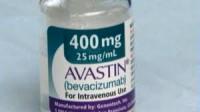FDA approves Avastin to treat patients with aggressive and late-stage cervical cancer
- Posted by Milton Bertrand
- August 16, 2014 7:07 PM EDT
- 0 comments
- 5,568 views
The U.S. Food and Drug Administration approved a new use for Avastin (bevacizumab) to treat patients with persistent, recurrent or late-stage (metastatic) cervical cancer.
By MILTON BERTRAND
August 16, 2014
On August 14, 2014, the U.S. Food and Drug Administration approved a new use for Avastin (bevacizumab) to treat patients with persistent, recurrent or late-stage (metastatic) cervical cancer.
 |
| Credit Image: abcnews.go.com |
According to the National Cancer Institute (NCI), cervical cancer is cancer that forms in tissues of the cervix. The cervix is the organ connecting the uterus and vagina. Cervical cancer is usually a slow-growing cancer that may not have symptoms but can be found with regular Pap tests. Pap test is a procedure in which cells are scraped from the cervix and looked at under a microscope to determine any cancerous cells. It commonly occurs when human papillomaviruses (HPV), a virus that spreads through sexual contact, cause cells to become cancerous. Although there are two licensed vaccines available to prevent many types of HPV that can cause cervical cancer, the National Cancer Institute estimates that 12,360 American women will be diagnosed with cervical cancer and 4,020 will die from the disease in 2014.
The mechanism of Avastin is that it interferes with the blood vessels that fuel the development of cancerous cells. Avastin is approved for use in combination with chemotherapy drugs paclitaxel and cisplatin or in combination with paclitaxel and topotecan.
“Avastin is the first drug approved for patients with late-stage cervical cancer since the 2006 approval of topotecan with cisplatin,” said Richard Pazdur, M.D., director of the Office of Hematology and Oncology Products in the FDA’s Center for Drug Evaluation and Research. “It is also the first biologic agent approved for patients with late-stage cervical cancer and was approved in less than four months under the FDA’s priority review program, demonstrating the agency’s commitment to making promising therapies available to patients faster.”
“The FDA reviewed Avastin for treatment of patients with cervical cancer under its priority review program because the drug demonstrated the potential to be a significant improvement in safety or effectiveness over available therapy in the treatment of a serious condition. Priority review provides an expedited review of a drug’s application.”
The effectiveness and safety of Avastin for treatment of patients with cervical cancer was evaluated in a clinical study involving 452 subjects with persistent, recurrent, or cervical cancer. The subjects were randomized to receive paclitaxel and cisplatin with or without Avastin or paclitaxel and topotecan with or without Avastin. The results showed an increase in overall survival to 16.8 months in participants who received chemotherapy in combination with Avastin as compared to 12.9 months for those receiving chemotherapy alone.
The most common side effects of Avastin include fatigue, decreased appetite, high blood pressure (hypertension), elevated glucose in the blood (hyperglycemia), decreased magnesium in the blood (hypomagnesemia), urinary tract infection, headache and decreased weight. Perforations gastrointestinal tract and vagina (enterovaginal fistula) also were observed in Avastin-treated patients.
Avastin is marketed by South San Francisco, California-based Genentech, a member of the Roche Group.
Source: U.S. Food and Drug Administration (FDA) FDA.gov
Geazle.com is a social network that connects scientists, technologists, engineers, and mathematicians (STEMers). In addition, Geazle is open to everyone that is curious about STEM.






